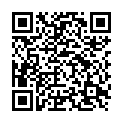|
|
|
| Module code: BSP-3 |
|
|
2V+2PS (4 hours per week) |
|
6 |
| Semester: 1 |
| Mandatory course: yes |
Language of instruction:
German |
Assessment:
BSP-3.1: Written exam
BSP-3.2: /
[updated 02.12.2025]
|
BSP-3 (P322-0096) Social work and early childhood, Bachelor, ASPO 01.10.2017
, semester 1, mandatory course
BSP-3 (P322-0096) Social work and early childhood, Bachelor, ASPO 01.10.2019
, semester 1, mandatory course
|
60 class hours (= 45 clock hours) over a 15-week period.
The total student study time is 180 hours (equivalent to 6 ECTS credits).
There are therefore 135 hours available for class preparation and follow-up work and exam preparation.
|
Recommended prerequisites (modules):
None.
|
Recommended as prerequisite for:
|
Module coordinator:
Dr. Sebastian Rahn |
Lecturer:
N.N.
[updated 04.11.2017]
|
Learning outcomes:
After successfully completing this course, students will:
a) At the professional level
...be able to distinguish between different theoretical approaches to the basic concepts of education, training, and socialization, critically compare them, and classify them based on literature.
...be able to independently examine issues relating to socialization, education, and educational science, and relate these to current social contexts.
...be able to develop and reflect on an understanding of the diversity and potential contradictions of socialization, upbringing, and educational processes.
...be able to describe and critically reflect on the role of central socialization institutions (e.g., family, peer group, school) in the context of the life course.
b) At an interdisciplinary level
...be able to independently read and understand scientific literature and use theoretical concepts to address their own (practical) problems.
...have become familiar with professional conduct and begun to deveop their own professional self-image, characterized by openness, recognition of complexity, and reflexivity.
...continuously and critically question their own professional convictions in dialogue with others.
...be able to recognize the possibilities of digital tools for dealing with theoretical content, evaluate them critically, and develop possible applications independently.
[updated 02.12.2025]
|
Module content:
Lecture:
-Presentation of key theoretical approaches to issues of socialization, upbringing, and education
-Basic understanding of socialization, issues in social and educational science, concepts, topics, approachesand theories,
Terms, topics and approaches
-Presentation of a life-stage perspective with a focus on transitions in the life course
-Discussion of the importance of institutions as agents of socialization for biographical development
Introductory seminar:
-Basic understanding of socialization, issues in social and educational science
Terms, topics and approaches
-Comparative discussion of theoretical approaches to questions of socialization, upbringing, and education
-In-depth examination of individual socialization instances (e.g., family, school, peer group)
[updated 02.12.2025]
|
Teaching methods/Media:
- Lecture
-Independent study: Reading and working through the specialist literature specified in the course
-Discussions in small groups and with the whole class
-Oral discussion of module topics (seminar discussion)
-Digitally supported peer instruction
Discussion of theoretical approaches based on film and series sequences
-Digital bulletin boards
[updated 02.12.2025]
|
Recommended or required reading:
Literature will be announced in the respective courses.
[updated 02.12.2025]
|


